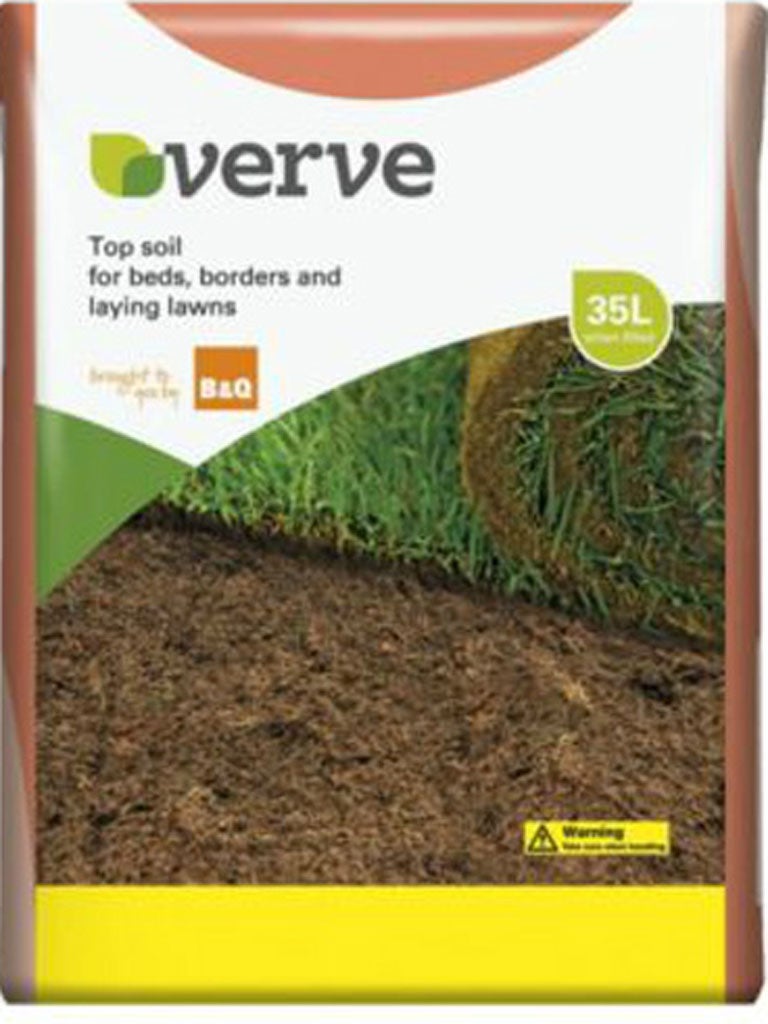For peat's sake... B&Q runs into trouble with new topsoil
Environmentalists accuse DIY chain of setting bad example with make-up of own-brand product

Your support helps us to tell the story
From reproductive rights to climate change to Big Tech, The Independent is on the ground when the story is developing. Whether it's investigating the financials of Elon Musk's pro-Trump PAC or producing our latest documentary, 'The A Word', which shines a light on the American women fighting for reproductive rights, we know how important it is to parse out the facts from the messaging.
At such a critical moment in US history, we need reporters on the ground. Your donation allows us to keep sending journalists to speak to both sides of the story.
The Independent is trusted by Americans across the entire political spectrum. And unlike many other quality news outlets, we choose not to lock Americans out of our reporting and analysis with paywalls. We believe quality journalism should be available to everyone, paid for by those who can afford it.
Your support makes all the difference.Britain's leading DIY chain has been criticised for increasing the amount of peat – an unsustainable natural resource – in its own-brand topsoil.
B&Q's new Verve topsoil contains up to two-fifths of peat matter. Peat bogs, which take millions of years to develop, play a key role in protecting threatened wetland habitats around the world, sheltering many rare species. They also store large amounts of carbon. When peatland is drained for human use, this is released into the atmosphere as the harmful greenhouse gas carbon dioxide.
B&Q is the country's largest retailer of growing mediums such as topsoil and compost, selling up to £5m worth of topsoil each year. Environmental groups have expressed their dismay at B&Q's new product, accusing the market leader of setting a poor example.
Britain is home to 13 per cent of Europe's peat habitat, and 38 per cent of commercially available peat in this country comes from UK peat bogs. While some areas are now protected, extraction continues to exhaust wetlands and release up to a million tons of carbon dioxide every year.
The Government aims to phase out the use of peat in gardens by 2020. However, incentives such as the Growing Media Initiative (GMI), of which B&Q is a member, have not dramatically reduced consumption, with nearly three million cubic litres of peat still used for horticulture every year.
Rob Shore, head of wetland conservation at the Wildfowl & Wetlands Trust, said: "I'm disappointed by B&Q's stance on this. It's not what you would expect from a market leader."
Mr Shore said peat-using companies had "taken their foot off the gas". "The time frame has given a lot of groups more breathing space than they needed," he said.
GMI manager Tim Briercliffe said: "Peat in topsoil is not a sensible approach at this time. But three barriers – quality, availability and price – determine so many decisions."
B&Q's new topsoil is lighter and easier to transport than peat-free alternatives, such as coconut fibre and loam, which can also be more expensive.
The company said: "Our topsoil does contain a percentage of peat and we are completely transparent about that on the packaging."
Join our commenting forum
Join thought-provoking conversations, follow other Independent readers and see their replies
Comments